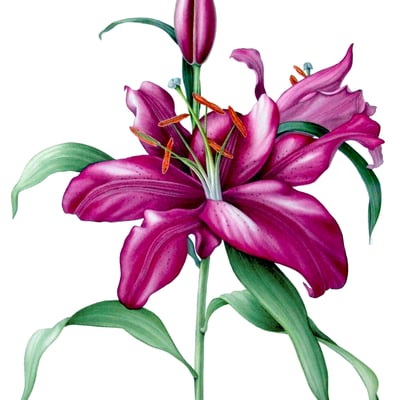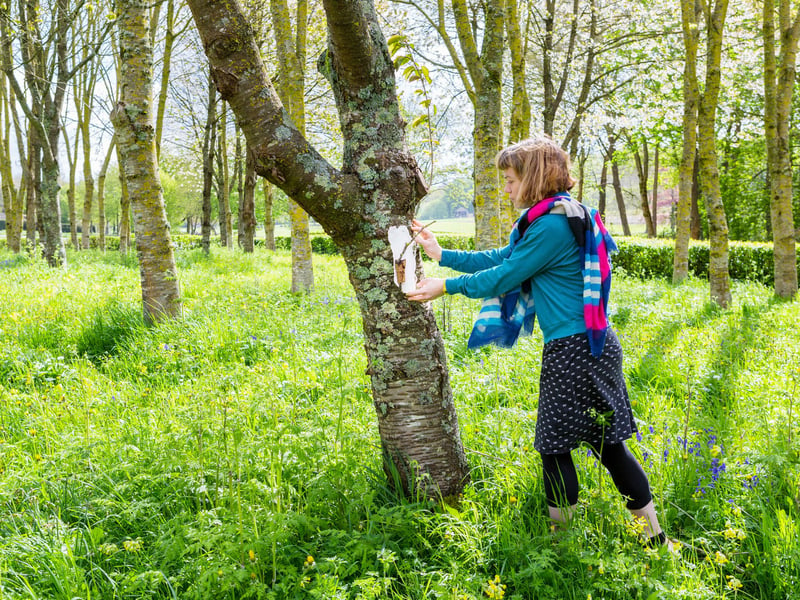Sandrine Maugy
Sandrine Maugy is a member of the Society of Floral Painters and the Society of Botanical Artists. She writes articles for Artists & Illustrators and her book Colours of Nature was published in 2013.
Ref: S2D37729
Study the anatomy and form of tulips and reproduce their vivid colours and distinctive shapes while developing your skills in essential watercolour techniques.
This course will help you to improve your skills in watercolour techniques as you gain confidence in botanical painting. Learn how to reproduce the vivid colours and typical shapes of tulips, improve your knowledge and understanding of colours and colour-mixing theory.
You will use sketches to develop complex drawing and tonal work. Painting techniques covered include wet-in-wet, colour-mixing, composition, tone and shadows, planning a painting and keeping a sketchbook.
Your tutor will support you with demonstrations and individual tuition throughout.
By the end of the course, you will be more familiar with the watercolour painting process, have gained theoretical knowledge, as well as practice, and understand the anatomy of tulips. You will have improved your ability to identify colours and reproduce them, and you will have produced at least one finished painting.
Available from shop: A good variety of art materials including:
Please wear appropriate clothing/aprons for the workshop or studio. This includes stout covered footwear, i.e. no open-toes or sandals.
Arrival day - first date of course
Residential students can arrive from 4pm, non-residential students to arrive by 6.45pm for registration
Student welcome, followed by dinner: 6.45pm (dinner included)
Teaching session: 8pm-9pm (attendance is essential)
Daily timetable
Course teaching: 9.15am-5pm
Morning session: 9.15am-12.45pm including coffee/tea break
Lunch break: 12.45pm-2pm (lunch included)
Afternoon session: 2pm-5pm including coffee/tea break
Teaching finishes: 5pm
Evening working: students may have access to workshops until 9pm, but only with permission from the tutor and provided any health and safety guidelines are observed.
Departure day - last date of course
Course teaching: 9.15am-3pm (lunch included)
Teaching finishes: 3pm
Residential students will need to check out of rooms by 10am.
Please note, the tutor may make slight variations to the daily timetable as required.

Sandrine Maugy is a member of the Society of Floral Painters and the Society of Botanical Artists. She writes articles for Artists & Illustrators and her book Colours of Nature was published in 2013.
Residential option available. Find out accommodation costs and how to book here.

Take the next step in your creative practice, with foundation level to Masters in Fine Art study.
Depending on your experience, start with an Online Foundation Certificate in Art and Design (one year, part-time), a Foundation Diploma in Art and Design made up of 10 short courses taken over two years (part-time) or advance your learning with our BA (Hons) Art and Contemporary Craft: Materials, Making, and Place (six years part-time). All will help you develop core skills, find direction in your practice and build an impressive portfolio in preparation for artist opportunities or higher-level study. See all degree and diploma courses.